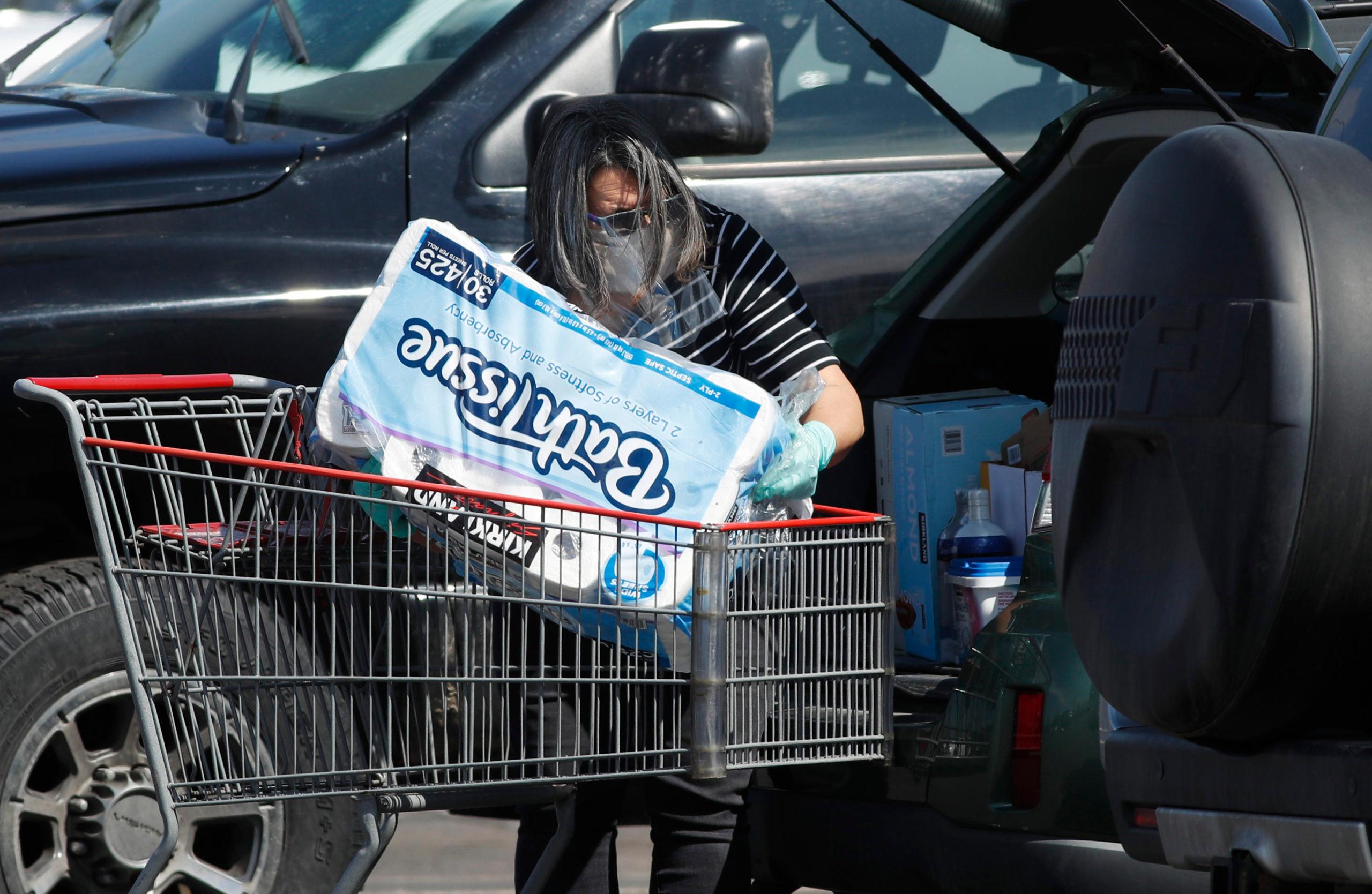
Of the limited activities allowed under Colorado’s “stay-at-home” order, grocery shopping has suddenly gone from necessary chore to vital isolation escape. It’s also become a bit of a roulette game.
Did you find toilet paper?
Maybe not at your store, but you did find plenty of bananas, mangoes and even whole pineapples. Or all the artichoke hearts you could desire. Or an absurd amount of canned peas. There also seem to be plenty of potato chips.
Since we all have to stay home, bare shelves at the grocery offer you an insight into what your neighbors might be cooking right now. If you’re having trouble finding something as basic as yeast or flour, you might be in a pocket of anxious bakers in need of fresh crusty sourdough or warm, gooey chocolate cake. The picked-over shelf experience isn’t a supply problem, it’s a demand problem.
"What you're seeing is, customers are coming in and they're bulk-purchasing items," Jessica Trowbridge of King Soopers told CPR News in mid-March. "They're collecting it off the shelf just as fast as we're putting it on the shelf."
The toilet paper though, that’s just hoarding.
At this point, your Charmin rolls have become the mascot for COVID-19 worries. The supply chain has compensated, manufacturers are in overdrive, and soon enough, the shelves will again overflow with the new “white gold.” When everybody wants something bad enough “it creates quite a shock to the supply chain,” said Jack Buffington, a professor of supply chain management at the University of Denver.
We’ve never noticed the intricate ballet that keeps store shelves full before because we’ve all been pretty chill about buying things. Now that the entire state wants to buy 100 rolls of toilet paper at the same time, that’s a problem.
Hard-to-find items will eventually become more available because people will have soon stocked up, he said. Stores have also instituted item limits to ensure customers get a better chance at a needed purchase. In the meantime, the question for the people behind the stores we shop in is who gets the toilet paper, or other consumables, that patiently sit in warehouses?
“When shocks like this occur, the manufacturer and the distributors have to do something called allocation to their retailers and then ultimately to their consumers,” Buffington told CPR’s Colorado Matters.
Just like the limits you face at the store (only one package of paper towels per household please), the store sees the same thing when trucks show up to drop off pallets of stuff that will eventually be packed onto shelves.
And you shouldn’t worry about the supply deliveries. Unlike the restrictions that everyday Coloradans face under the “stay-at-home” order, groceries, supply and transportation are considered essential businesses.
“From a consumer standpoint, obviously many places in the world are locked down,” Buffington said. “But from a commercial standpoint, there are few travel restrictions when it comes to ships that are bringing products from other countries. Airfreight, of course, transportation around the United States has ramped up in order to make sure our supply chains run.”
The trucking industry was initially on its heels. Now that demand has started to spread out, the big rigs have adjusted and they are now “at full capacity in order to support the supply chain as we need it to be,” Buffington said.
As unemployment balloons in the wake of the pandemic, delivery workers and truck drivers are now very popular.
“Not only long haul demand, but also with all of the Amazon deliveries that people want at their doorstep,” Buffington said.
There’s also an increased crunch now that dine-in service has been suspended in Colorado and restaurants have turned to door-to-door delivery and take-out to keep their businesses afloat.
The demand is one thing. The time needed to train drivers or the federal limits on how much they can drive is another.
“I think people are now realizing how critical truckers are to our supply chains and how they live, how their lives are,” he said. “We should definitely respect the profession, and hopefully there'll be changes in order to allow more people, who perhaps lose their jobs, to enter the profession.”
If you learn at least one thing during the pandemic, let it at least be a new respect for the jigsaw puzzle that forms the path between where your groceries come from and when you stuff them into your reusable tote bag.








